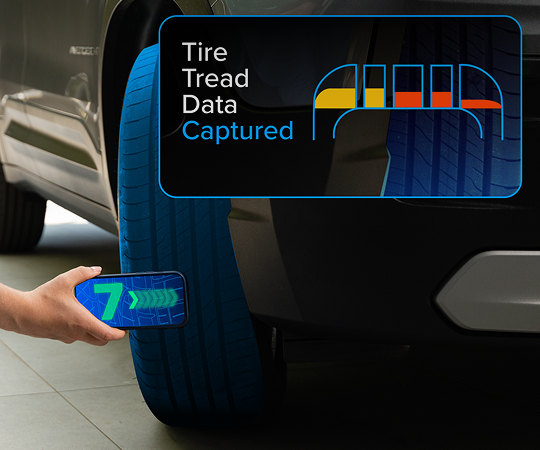
Commercial Fleet Management: All the Tech You Need
For commercial fleet managers, technology has become one of the most important resources available today. Depending on the application used, there are dozens of ways technology is changing the way commercial fleet management organizations operate. From improving productivity to boosting efficiency, fleets are being better managed, and profits are reflecting that benefit.
Numerous types of technology are making their way into the organization, including telematics, some of the first of the more advanced technology used today. In addition, mobile data capture tools, artificial intelligence, and computer vision are moving into various industry sectors, creating new opportunities and better methods for managing fleets.
Consider some of the most impactful ways technology impacts how organizations manage their fleets.

Inclusion of Telematics
Telematics allows organizations to track where vehicles are with real-time precision and accuracy. Paired with GPS tracking systems, this can allow fleet managers to have a clear visual of where trucks are within the fleet. This can help with compliance management, reducing the risk of traffic jams slowing down deliveries, enhancing vehicle security, and enabling better oversight and monitoring of vehicles.
Telematics is also supporting vehicle diagnostics. It allows the fleet management team to better monitor the health and performance of vehicles in real-time and from a distance. This can help with improving fuel efficiency, pinpointing and monitoring maintenance needs, and enhancing the overall understanding of the vehicle’s lifespan.
Fleet Management Software
The latest versions of fleet management software are far more robust, offering more insight into complicated fleet data. Thanks to the cloud-based solutions available, they allow for access to information anytime. This allows for multiple organizations to collaborate across the company.
Asset management and maintenance management can also be managed through fleet management software. This allows for an ongoing method for managing all assets, vehicle maintenance tracking, and improving overall downtime of operations due to better planning.
Mobile Applications
Another valuable type of data for fleet managers is the use of mobile apps, which allow for more streamlined communication with the fleet, improved management of tasks, and even route and scheduling updates in real-time, minimizing any lack of communication.
Another tool is the use of electronic logging devices, which have become a necessary component of regulatory compliance. They allow for the creation of logs of driver location, hours of service, and other valuable data.
Fuel Management Solutions
Another type of technology that minimizes costs and provides insight into the efficiency of fleets is fuel management solutions. They are able to provide companies with more insight into their fuel usage, costs, and overall rate of burn.

Predictive Analytics
With the use of more advanced tools, like predictive analytics, fleets are able to get a better idea of what “could” happen so they can plan for it. That could include factors like optimizing routes to minimize delays due to bad weather or creating plans to optimize maintenance schedules to reduce downtime risks.
Safety and Security Systems
Technology is a huge factor in improving driver safety, which is something we see in electronic log devices, but it can also help with other resources. For example, with AI and computer vision, it is possible for vehicles to take corrective vision to minimize accidents. Video telematics goes one step further by monitoring driver behavior, allowing fleet managers to see a tired driver long before an accident occurs.
Automation and IoT
The use of IoT sensors can help provide better insight into the conditions within a vehicle, such as humidity and temperature control. Automation can also handle some of the more mundane tasks that frustrate and limit people, like managing logging processes.
Integrating with Other Systems
It’s also important to recognize that the use of CRM and ERP systems can be integrated into the way organizations manage their fleets. This allows for more comprehensive resource planning, driver management, and even allows for improved efficiency. It can also play a role in factors such as supply chain management.

What’s New?
Mobile Data Capture makes collecting analog information on a vehicle much faster, easier, and more accurate. Fleet management and analytic platforms need a lot of data to optimize maintenance, tire replacement/retread, fuel consumption, driver routes, and more. Embedding mobile data capture solutions within existing driver and technician apps ensures data can be collected more often and is standardized and trusted.
Consider some of the data that can be collected:
- Tire Tread Scanning
- Tire Sidewall Scanning
- License Plate Scanning
- Vehicle Identification Number Scanning
- Odometer Reading
- ID Scanning
- Barcode Scanning
The integration of these transformative technologies catapults commercial fleet management into a realm of unprecedented efficiency. Businesses that embrace these advancements can enjoy improved visibility, reduced costs, and an overall boost in fleet performance, driving success in the ever-evolving landscape of modern commerce.



